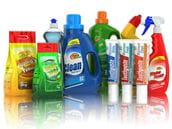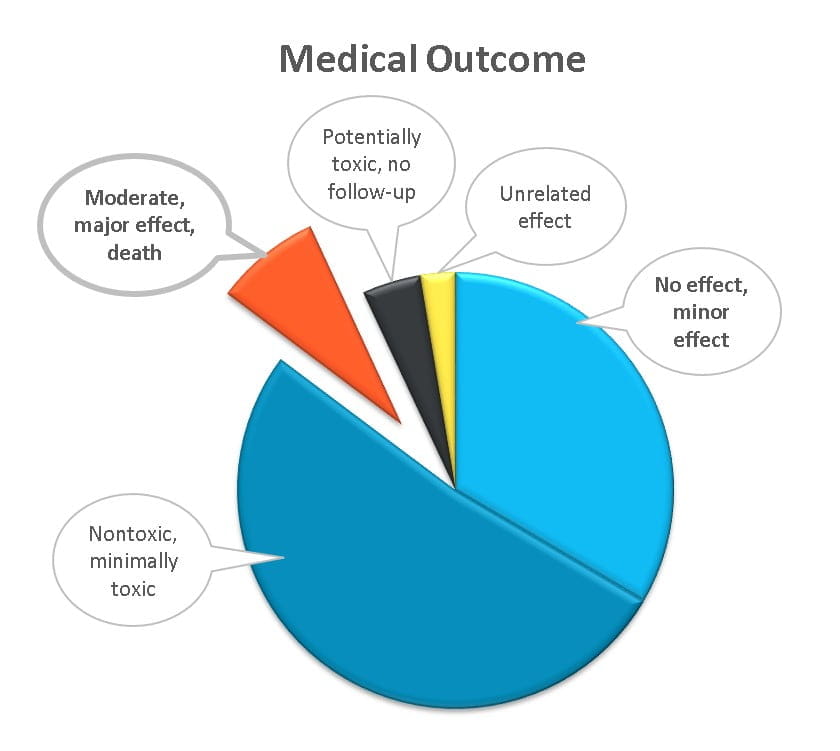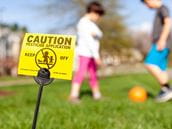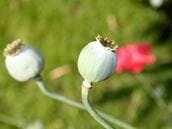
What is a poison and what is Poison Control?
A poison is defined as a substance that can cause harm to the body when consumed or inhaled. Poisons affect the human body in complicated ways.
Displaying 71 - 80 of 168 results for "plants"
A poison is defined as a substance that can cause harm to the body when consumed or inhaled. Poisons affect the human body in complicated ways.
Dirt is a mix of sand, rocks, pebbles, and other substances. Soil contains dirt, as well as minerals and nutrients. Eating dirt or soil can cause an upset stomach, while more serious toxicity can occur with chronic eating. Some pregnant women, as well as others with an eating disorder known as pica, crave non-food items such as dirt and clay.
Poison statistics for the Washington, DC metro area (2020)
Organic arsenic is less toxic than inorganic arsenic. Inorganic arsenic contaminates groundwater. Acute toxicity includes vomiting, neurological and cardiac toxicity, anemia, and rashes. Chronic toxicity produces gastrointestinal symptoms, anemia, decreased white blood cells, peripheral neuropathy, liver damage, and vascular insufficiency. Arsenic is a human carcinogen.
Insecticides are chemicals that kill insects by various mechanisms. Depending on the insecticide, you may experience toxicity from ingestion, contact with skin or eyes, or inhalation. Toxicity might occur following a single acute event, as well as a short- or long-term exposure. If you are concerned about insecticide exposure, call Poison Control to find out your toxicity risk and if you need medical treatment.
The pits of stone fruits like cherries naturally contain a cyanide-producing chemical. Small, unintentional ingestions of intact stone fruit pits generally do not cause harm. Crushing or chewing pits before swallowing can result in the release of cyanide. The use of stone fruit pits as complementary or alternative medicine is unsupported by scientific evidence.
Pregnant women with high blood lead levels can have high blood pressure, spontaneous abortion, small babies, and brain damage in the infant. All pregnant women with even one risk factor for lead poisoning should have a blood lead level done. Pregnant women with lead levels at or above 5 micrograms/deciliter must have further assessment and treatment.
The toxic effects of air fresheners differ depending on the formulation. Inhaling small amounts of most air fresheners is usually not dangerous. Swallowing the gel-type evaporative beads or reed diffuser solutions can cause serious effects. There are also concerns about the adverse effects of repeated air freshener use on the environment and the body’s health.
Heroin, an addictive, illegal drug, can cause fatal overdoses. It is an opioid, a class of drugs that includes morphine, codeine, oxycodone, and hydrocodone, among others. Heroin use is increasing due to tighter controls on prescription opioids. Naloxone is the antidote for an acute overdose. Withdrawal should be medically supervised.
Natural gas is a gaseous hydrocarbon mixture with methane serving as the main gas. Methane is a simple asphyxiant that displaces oxygen in the air. If the methane concentration is high enough, the result is hypoxia and asphyxia (suffocation). If you suspect a natural gas leak, leave the building and contact the gas company. If people are sick, call Poison Control.
Don't guess what you should do. Get accurate Poison Control answers online or by phone. Both are free and confidential.
or CALL 1-800-222-1222
The Poison Post® is a free, quarterly
e-newsletter delivering poison prevention tips right to your inbox!
Learn the Poison Help jingle in English or Spanish. Use these jingles to teach the Poison Control number: 1-800-222-1222. Available for download.










